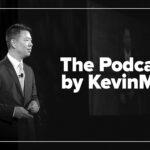American medical schools and universities once led the world in biomedical discovery, in large part due to federal funding. Public investment in science helped eradicate polio, unlock the human genome, and develop life-saving treatments for diseases once considered death sentences. But that era of reliable federal funding is ending under the current White House administration – and America’s research enterprise is at risk of going with it.
Over the past decade, funding from the National Institutes of Health—the single largest source of medical research money in the country—had barely kept pace with inflation. More scientists had been competing for fewer dollars, success rates for grant applications were declining, and once-stable research programs had been held together by duct tape and goodwill. And now, with the threats to NIH funding mechanisms due to the upheaval at the secretarial level of the Department of Health & Human Services, the already strained funding is further diminishing.
This is a breaking point where the competitive edge of U.S.-based scientific institutions including medical schools and teaching hospitals will dwindle. And if the federal government can no longer serve as the bedrock of American science, then our country’s wealthiest research institutions—namely, our universities—must step up. Specifically, American public and private universities need to do something most of them are loath to do: Spend their endowments.
These endowments represent a massive amount of collective wealth and are very much available. Harvard’s endowment is over $50 billion. Stanford’s is north of $40 billion. Yale, Princeton, and Columbia each manage tens of billions. Taken together, American universities control more than $840 billion in endowment funds—enough to run the NIH for over two decades or more. Yet these same institutions, celebrated for biomedical discovery and innovation, are quietly watching their research ecosystems starve. Labs are closing. Young investigators are leaving academia. Fields that do not align neatly with federal priorities—like health equity, community-based research, or high-risk translational innovation—are being sidelined. This is a crisis, and not just for physicians, scientists, and trainees. Without new treatments, vaccines, or health strategies, all of us lose.
The problem is not simply austerity. It’s institutional inertia. University leaders often insist their endowments are legally restricted or that they must protect these funds for future generations. But the reality is more nuanced. Most schools have significant unrestricted or semi-restricted funds that can be tapped. And they frequently make exceptions—to fund new buildings, invest in real estate, or patch holes in athletic budgets.
To be unapologetically honest, if universities can subsidize football stadiums and campus beautification projects, they can subsidize biomedical research. And the impact would be enormous. If just 1 percent of the top 25 university endowments were used each year to support research, that would generate roughly $1 billion annually—equivalent to a 7 percent boost in the NIH budget. But beyond the numbers, these dollars would be flexible. They could support risk-taking, equity-focused studies, or experimental clinical and mental health research that does not always win federal grants.
This is not just a smart investment: It’s a moral one. Universities are tax-exempt institutions. They receive public subsidies and federal dollars. They tout their societal contributions gleefully. But that public trust comes with responsibility—and in the coming months, the public needs them to act to support health research. University presidents and deans should set up internal grant programs, prioritize underfunded research areas, and provide “bridge funding” for researchers caught between NIH cycles. They should build infrastructure that helps young physicians and scientists thrive—not just survive.
To be clear, no one is suggesting these institutions empty their coffers. But endowments are meant to serve a mission, not sit idle. What is the point of preserving wealth for future scholars if the very system that trains and employs them is gutted?
And this is not at all financially reckless. Investing in research has proven returns. The Human Genome Project, which received just under $4 billion in federal funding, generated nearly $800 billion in economic activity within two decades. Every dollar spent on science yields dividends—in public health, in jobs, and in global leadership.
So the question is not whether universities can afford to support research. The question is whether they can afford not to. With political winds shifting, federal research dollars will likely continue to shrink and if our best-funded universities do not fill the gap for their medical schools and teaching hospitals, we risk losing generations of progress. It is time for universities to stop sitting on their endowments and start standing up for science.
Adeel Khan is a hematology-oncology physician.





















![AI censorship threatens the lifeline of caregiver support [PODCAST]](https://kevinmd.com/wp-content/uploads/Design-2-190x100.jpg)
